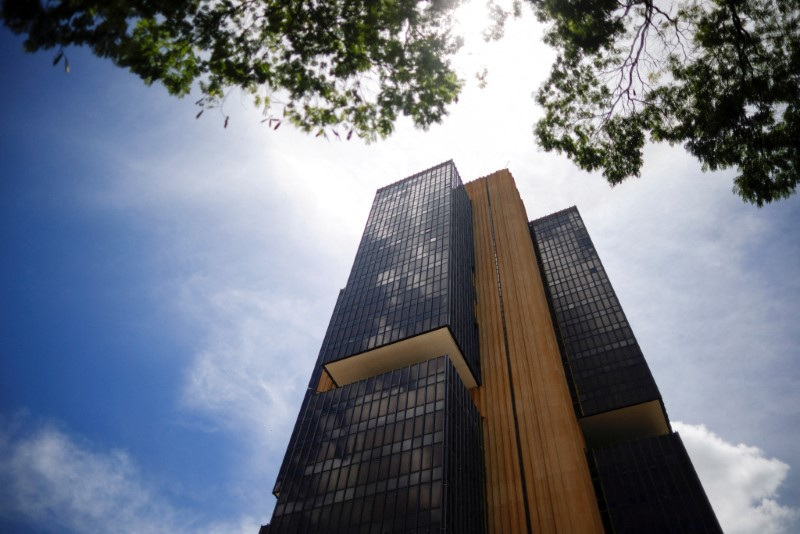By Gabriel Burin
BUENOS AIRES (Reuters) – The Brazilian central bank will step up its campaign to raise interest rates with a big 75 basis point hike on Dec. 11, possibly also hinting at more restrictive monetary policy next year, a Reuters poll showed.
That would be the third increase in a row as inflation gathers pace, following two smaller rises of 25 basis points in September and 50 basis points last month, and would leave the Selic benchmark rate at 12%.
Banco Central do Brasil (BCB)’s rate hike acceleration coincides with the U.S. Federal Reserve’s recent caution on its cutting push in the face of the risk of a resurgence in consumer prices in 2025.
A majority of analysts, 31 of 40, predicted a 75 basis points increase on Dec. 11 to 12% from the current 11.25%. Five called for a more moderate 50 basis points increment, while four anticipated a steeper full percentage-point hike.
The survey was taken Dec. 2-6.
On Monday, BCB’s incoming chief said current conditions pointed to “higher interest rates for longer” and that the bank would not intervene in foreign exchange markets in spite of turbulence there that has stoked imported inflation pressure.
Brazil’s consumer prices rose more than estimated in the month to mid-November, with annual inflation accelerating to 4.77%, above the upper end of the central bank’s 1.5%-4.5% target range.
All 25 respondents who answered a separate extra question on the BCB’s next action forecast another rate increase in January. Among them, 19 saw a 75 basis point move, four a 50 basis point increase, and two envisaged one full percentage point.
Looking ahead, the Selic rate is forecast to peak at 13.50% in the second quarter of next year and stay there until the last three months of 2025. Median forecasts from a smaller sample predict it will be lowered then by a half-percentage point to 13.00%.
The overall forecasts were more hawkish than a November poll, which predicted the Selic reaching a high of 12% in the first quarter, before reductions of 25 basis points in the July-September period and 75 basis points later, to end 2025 at 11.00%.
“Currency depreciation, unanchored inflation expectations, unsustainable debt dynamics, and overheating across goods and labor markets underpin real rates considerably above neutral,” Deutsche Bank (ETR:DBKGn) analysts wrote in a report this week.
“The cycle remains open-ended, and conditional on FX and inflation expectations yielding to hikes. Although we pencil in 14.5% at the end of the cycle, risks are skewed to even higher rates and on hold for most of the year (2025).”
(Other stories from the Reuters global economic poll)
(Reporting and polling by Gabriel Burin in Buenos Aires; Editing by Ross Finley and Alison Williams)

